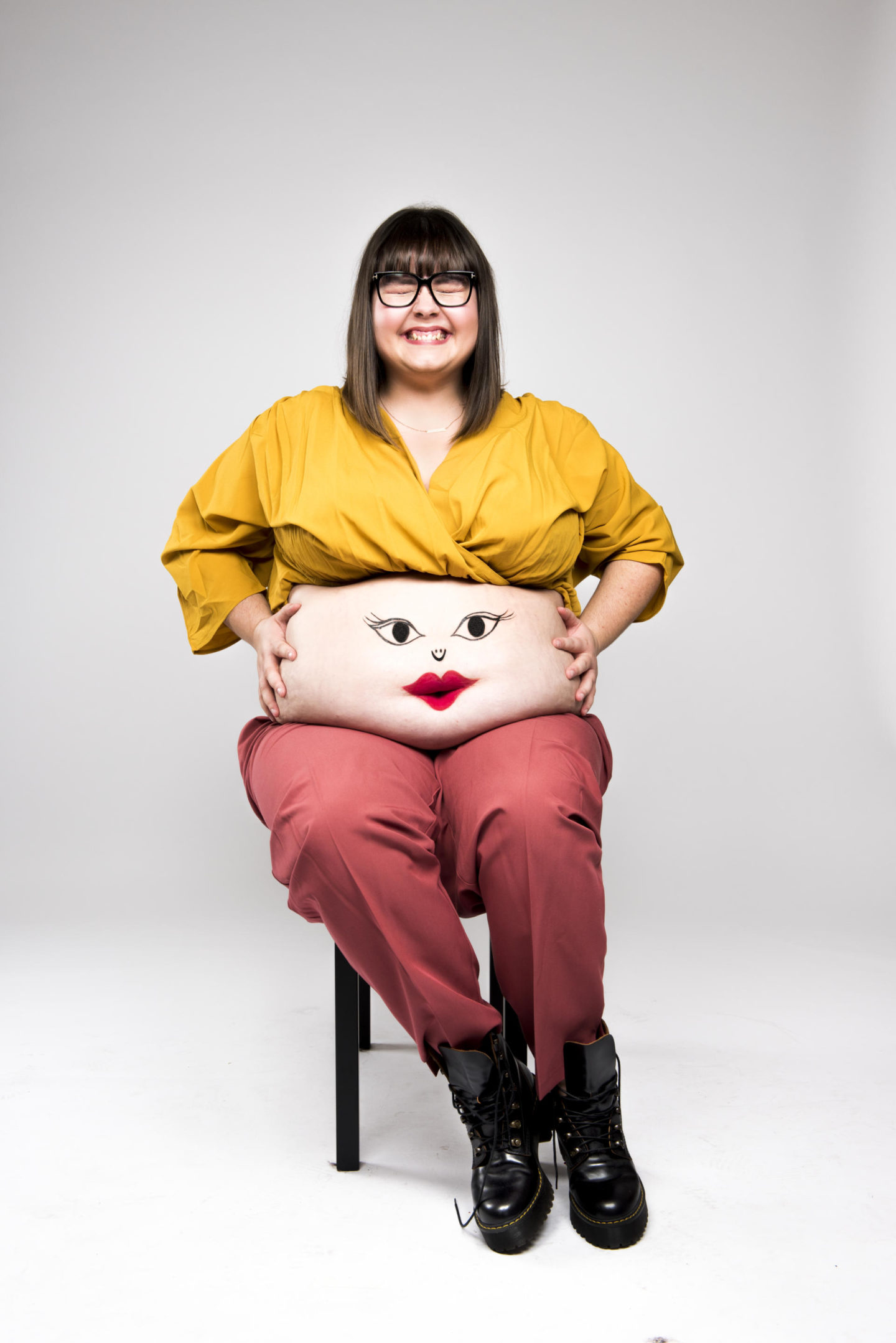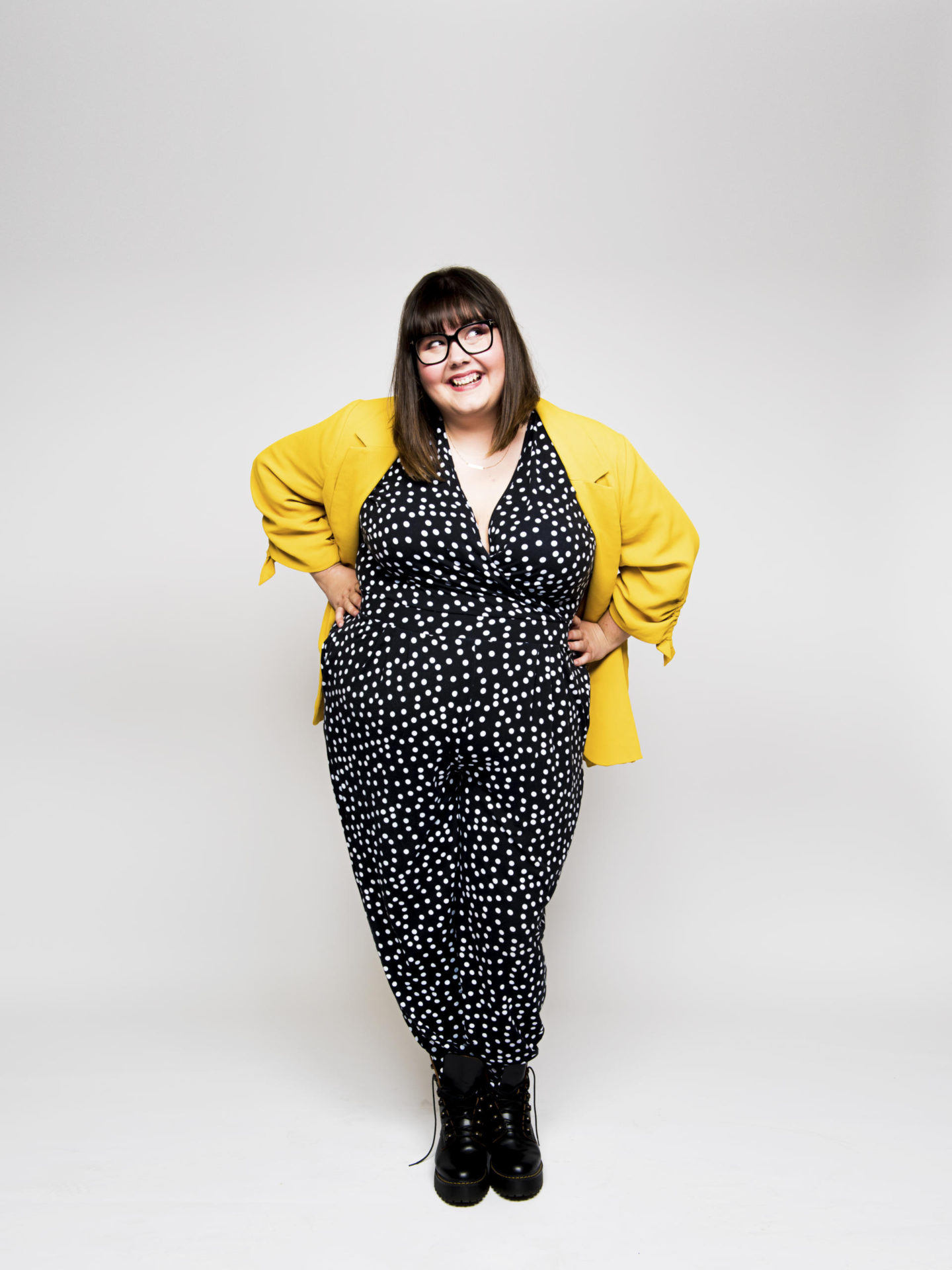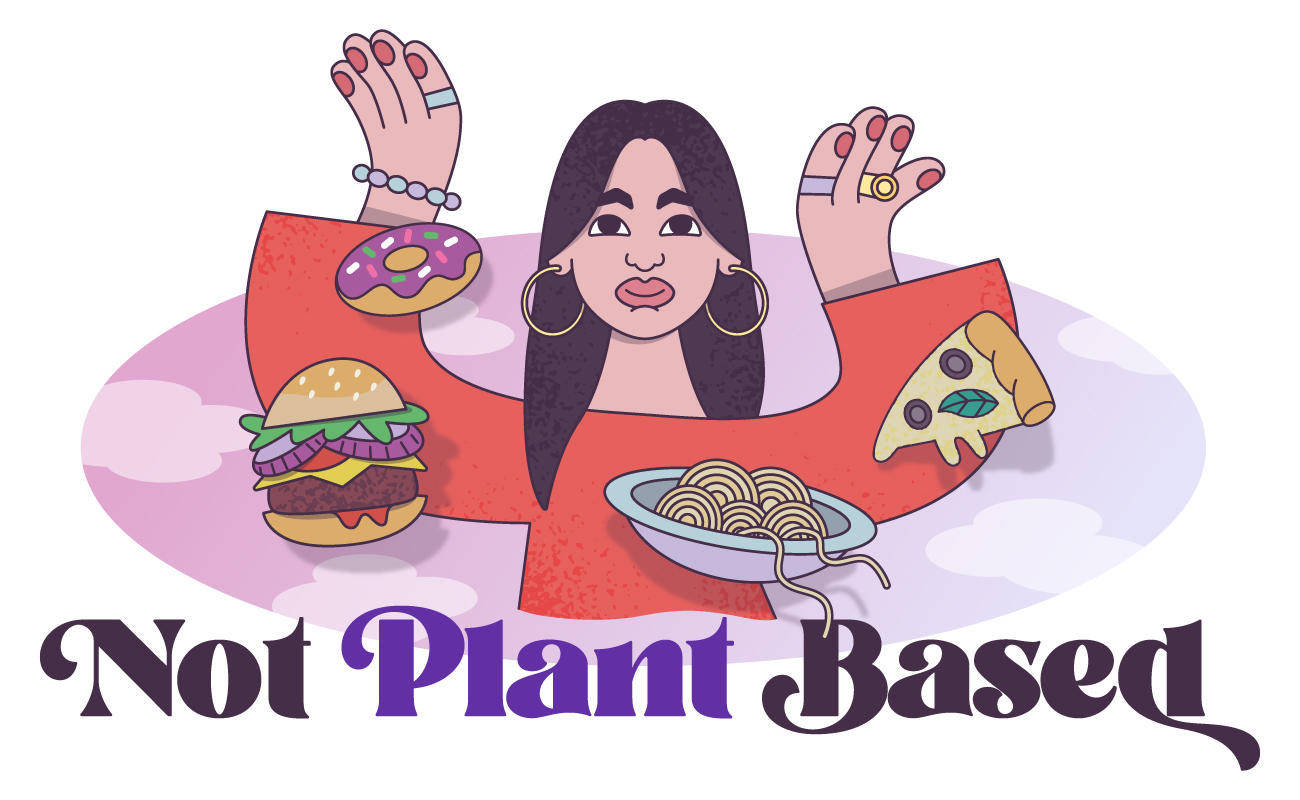
Last week, I finished one of the most insightful books I’ve read in a long time. Happy Fat: Taking Up Space in A World That Wants To Shrink You, by Danish Comedian Sofie Hagen, took me on a light-hearted journey through their, at times, disturbing (to say the least) life. With a body shape considered sinful by body fascists and health zealots, Hagen – who identifies as non-binary- has been forced to endure abusive chants from train passengers, endless parent-enforced diets and the spine-curdling humiliation of plane seats designed for small children. But somewhere along the way came a revelation: What if the problem didn’t lie with them, but with everyone else instead? A friend suggested they considered the root of the messages telling them they were incorrect or sub-par. Were they based on facts? Or gospel of million dollar companies with KPIs to meet, advertising quotas to fill and diet books to sell?
‘Once I realised certain things, it all felt so simple,’ says the 30-year-old comic. ‘What we consider ‘facts’ – that fat is inherently bad, that fat is unhealthy, that fat is unattractive – all stems from someone who lied to you one time. It isn’t true and it doesn’t have to be true to you. These are not facts.’ Whilst the science is still hotly debated, Sofie is right about the astounding gap in scientific literature directly linking fatness to early death. Some studies fail to account for co-founding factors also known to shorten life such as mental health problems, social stigma related to obesity and even alcohol intake. In these cases, a direct link it hard to establish. There is good evidence for a direct link between extreme obesity and poor health, but only roughly five to ten per cent of British adults fall into this category.
There’s also a fair amount of studies showing that people who are overweight live longer and healthier lives than those at the opposite end of the spectrum. Clearly, distinguishing whether it’s excess weight that’s causing health problems, or a myriad of immeasurable factors is tricky. But even if you are in that five to ten per cent, are you automatically less worthy of love/celebration/sexual appreciation? Of course not. As a health writer who picks the brains of clinicians on a daily basis, I am often dumb-founded by their undercurrent of fat-phobia in the way they speak. It’s as if the tolerant, left-leaning juice is instantly sucked out of them the minute they learn a person is overweight. Obviously these patients spend most of their time eating (on the sofa), are weak-willed in their dedication to exercise and are too stupid to understand that eating cake everyday isn’t good for their health. All they need to do is buy a packet of lentils and some carrot sticks – don’t they read the news? If these assumptions were made of any other demographic, it would be deemed highly unacceptable. In woke 2019 we accept it is wrong to define people based purely on the colour of their skin, their religion, their sexuality, their disability or their assigned gender. When it comes to body size however, it’s perfectly tolerable – and even encouraged by some health chiefs – to assume behaviours, characteristics and health outcomes. But it’s permissible, they say, because it’s all in aid of poor, fat people’s ‘health’.
‘WE SPEND MILLIONS ON GETTING THIN, SO COMPANIES MAKE SO MUCH MONEY ON US HATING OURSELVES’
As Sofie says: ‘You just have to look out the window or walk down the street and it’s the message on every billboard, women’s magazine, on the news, in clothes shops, on sides of buses. Fat is the worst thing you can be. Show me a TV show that portrays fat people in a positive light or that even just portrays us at all.’ As for the vitriolic abuse they’ve personally been subjected to: ‘none is forgotten. Every [insult] seeps through my skin and adds to my every day life. That’s how discrimination and bias hurts people in marginalised groups. The micro-aggressions are what makes us tense and stressed because everywhere is full of potential danger and fear.’ So, if the health stuff is perhaps bullshit, what else is to blame for our underlying fear of fat?

‘It stems from capitalism,’ says Sofie. ‘We spend billions of dollars and millions of pounds on getting thin, so there are people and companies making so much money on us hating ourselves. They’re getting rich because we hate our bodies. That’s why they make us hate them.’ Today, three out of the ten best-selling books on Amazon are weight-loss related. At the end of last year, Weight Watchers – the biggest weight-loss subscriber programme in the world – made £409 million dollars. The UK is the company’s second biggest market after North America. In total, the UK weight-loss market is said to be worth around £120 million. So yes, there’s serious money to be made off our collective insecurities.
But here’s my problem. I’ve inhaled these manifestos, read countless studies and I even speak the gospel. But the knowledge has not, so far, enabled me – a white, cis, thin, able-bodied woman – to love, or even like, my body. I’m the annoying dinner party guest who insists the female attendees have a slice of the chocolate tart because did they know that being fat isn’t actually unhealthy and denying yourself what you love has more powerful implications for their risk of disease? I eye-roll at my friends who drag themselves to the gym after work (instead of watching Love Island with me) in a quest for ‘abs a bit like that fitness influencer. Strong not skinny.’ Abs are a commercially-constructed manipulation of the natural female body!!! I tell them. But while they’re at the gym causing themselves irreversible spinal damage, I’m at home, avoiding reflective surfaces for fear I may catch a peek of the skin that hangs over my waistband, or a fleshy, fold I’d not noticed before.
‘ALWAYS SHUT IT DOWN. ALWAYS FIGHT IT’
And this is why Sofie Hagen’s frank philosophy speaks volumes louder than any other body positivity campaigner. For me, anyway. ‘The body positivity movement was started in 1960s by fat, queer women and women of colour,’ Sofie explains. ‘The point wasn’t that people should love their bodies, it was that the corporations shouldn’t teach us to hate ourselves in the first place.’ Sofie’s message is refreshing honest and realistic with no less fighting spirit than other BoPo advocates. Quite simply, we must stop seeking self-improvement – whether it’s manipulating our physical shape, or our feelings towards our body – and instead focus on seeing the warped environment around us for the stratosphere of bullshit that it is. How can we be expected to fall in love with our rolls of back fat when the whole world (and that dickhead you slept with at uni) tells you they’re gross? It is yet another unrealistic expectation, achieved by a lucky cohort of women with an enviable amount of self-confidence.
Even Sofie admits there’s days when they are caught ‘off guard by the voice in my head suddenly criticising my body.’ And a relationship with food, they say, is not ‘positive’. ‘I have a neutral relationship with it. Sometimes I’m really happy because it’s a lovely home-cooked meal and I’m hungry. Other times, it’s just whatever I can find because I’m on the go and I need to eat breakfast. I don’t count calories or even think about calories.’
The goal, I guess, is to finally understand, and accept that you – in your natural, contented form – are more than fine. And that anyone who tells you otherwise has got his or her shit twisted. Her advice for computing the ‘Revenge Body TV programmes and fat-shaming charity campaigns? ‘I never let it speak for long, I always shut it down, I always fight it,’ says Sofie. So, while I might not be writing love letters to my cellulite anytime soon, I will be treating my local slimming world representative to a surprise package (slug through the letterbox). Joking, I’m not a psychopath. Maybe just a healthy undercurrent of anger will do.
Happy Fat: Taking Up Space in a World That Wants To Shrink You is out now, published by 4th Estate. Sofie is currently performing at the Edinburgh Fringe Festival. Tickets to see the show, The Bum Swing are available here.



